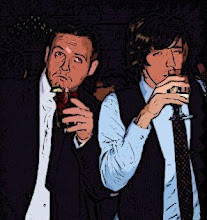If there is one thing I’ve learned during my adventures through the cinematic universe, it’s that you can’t spell “actor” without using a couple of the same letters from “action”. You see, for an Action movie, as with any other genre, you’re going to need some actors (unless it’s a Documentary); because you’re making a “film”; which usually requires someone possessing a talent for pretending to be somebody else.
Dictionary.com defines the term “actor” as a noun meaning “a person who acts in stage plays, motion pictures, television broadcasts, etc.”, or more importantly, “a person who does something.” Watching the kind of films I normally do, there are a lot of people doing things, but you have to come to the understanding that more often than not, the filmmakers tend to focus more effort on the visual pallet than the subtext beneath it. That’s precisely why these explosion-filled rollercoaster rides are populated with super-fit, muscle-bound tough guys who can convincingly tear someone’s head off, but not be required to cry on command. Russell Crowe is however someone who can credibly perform in both of these arenas. It’s probably a similar reason I’ve always enjoyed Mel Gibson’s movies. The guy can kick someone’s ass while acting circles around them at the same time. I think it is a combination prominently showcased in
Lethal Weapon. One of the first things we see Riggs doing is crying over a picture of his dead wife, on the verge of committing suicide. Next he’s taking out a group of drug dealers in a Christmas tree farm. So Mel’s got it. Russell’s got it. Eric Bana’s got it. Maybe it’s an Australian thing. Who knows?
Proof of Life, starring Crowe and Meg Ryan, is a movie that, after watching, I feel has gotten sort of a bad rap because of the whole media uproar that happened when Ryan admitted to having an affair with Crowe during filming. Even stranger is that one of the movie’s subplots seems to stray unusually close to the real-life drama that unfolded around the same time. The plot follows Ryan and David Morse’s husband and wife characters, living in South America. Morse is working for a subsidiary of a big oil company, while Ryan is an ex-hippie, turned housewife. Soon into the movie he is kidnapped by some kind of pseudo-revolutionaries who think he’s working on the oil pipeline and the company behind its production will pay handsomely to get him back. What the rebels fail to realize and choose not to believe when he tells them, is that Morse is actually working on a large river dam that will supposedly save a bunch lives for some reason, and it’s a project that the oil guys are not really involved in and therefore could care less about his safe return. As usual, big oil guys drop the ball on admirable behavior.

So it’s a tough situation. Ryan is understandably upset, with only her sister-in-law, played by Pamela Reed (Arnold’s partner in
Kindergarten Cop); to deal with things after Crowe’s character is called in to help with the ransom demands. While working together, Crowe and Ryan’s characters become very close and obviously develop feelings for each other. On one hand, it’s kind of sweet, but on the other hand her husband is still being held captive by South American rebels, so you can’t ultimately feel right about the whole thing. I guess that actually makes it seem more realistic, since it’s a little more awkward than Hollywood tends to go for. It didn’t really bother me though, maybe in part of all the hoopla surrounding the film’s off-screen affair making what actually happens in the movie seem not nearly as bad. I figured the two characters were gonna bang out or something and it would feel all dirty and inappropriate, but that doesn’t happen. They do share a kiss, but it’s more of an emotional “thank you” kiss before Crowe and his cohorts actually go in for the rescue.

The rescue itself provides the audience with a nice cathartic and rousing finale, which was necessary I think after all the drama that preceded it. It’s kind of like one those Jack Ryan movies where all this drama and political stuff is going on, and it’s cool and all, but you’re still going to need a big ol’ action scene at the end to close things out with a bang. And as far as final action scenes go, I really enjoyed this one. Crowe, his buddy Dino, played by David “No, fuck you” Caruso and a couple other guys slip into the prison camp quietly and methodically take out one guy at a time, until the shit inevitably hits the fan. Luckily for these rescuers, David Morse ain’t no bitch hostage, either. He had been giving his captors trouble through the bulk of his captivity, and when it comes time to step up, he does a solid job.

I guess another reason people didn’t seem to think as highly of this movie as I probably did, was because it was most likely being sold as a bigger deal film than it actually is. It had Russell Crowe fresh off his Oscar win for
Gladiator, Taylor Hackford (
Ray,
Dolores Claiborne,
An Officer and a Gentleman) directing, and Meg Ryan playing a less wholesome, more “real” character than she normally does. Here she gets to smoke cigarettes and not wear a bra and everything! So maybe it’s not a sure-fire Oscar contender, but I still found it to be an entertaining, well-made thriller with just the right amount of melodrama and a splash of action thrown in for good measure.
"I think you need to take it down a couple notches."
Body Count - 20












No comments:
Post a Comment